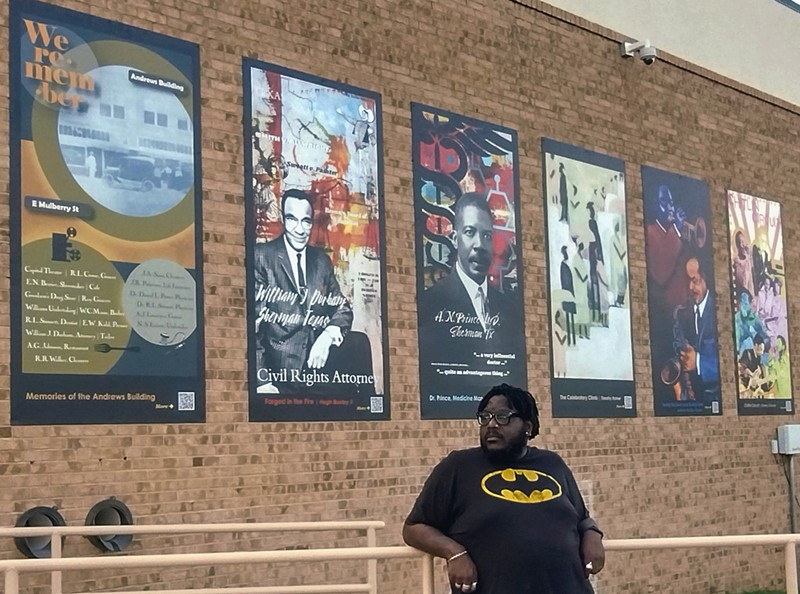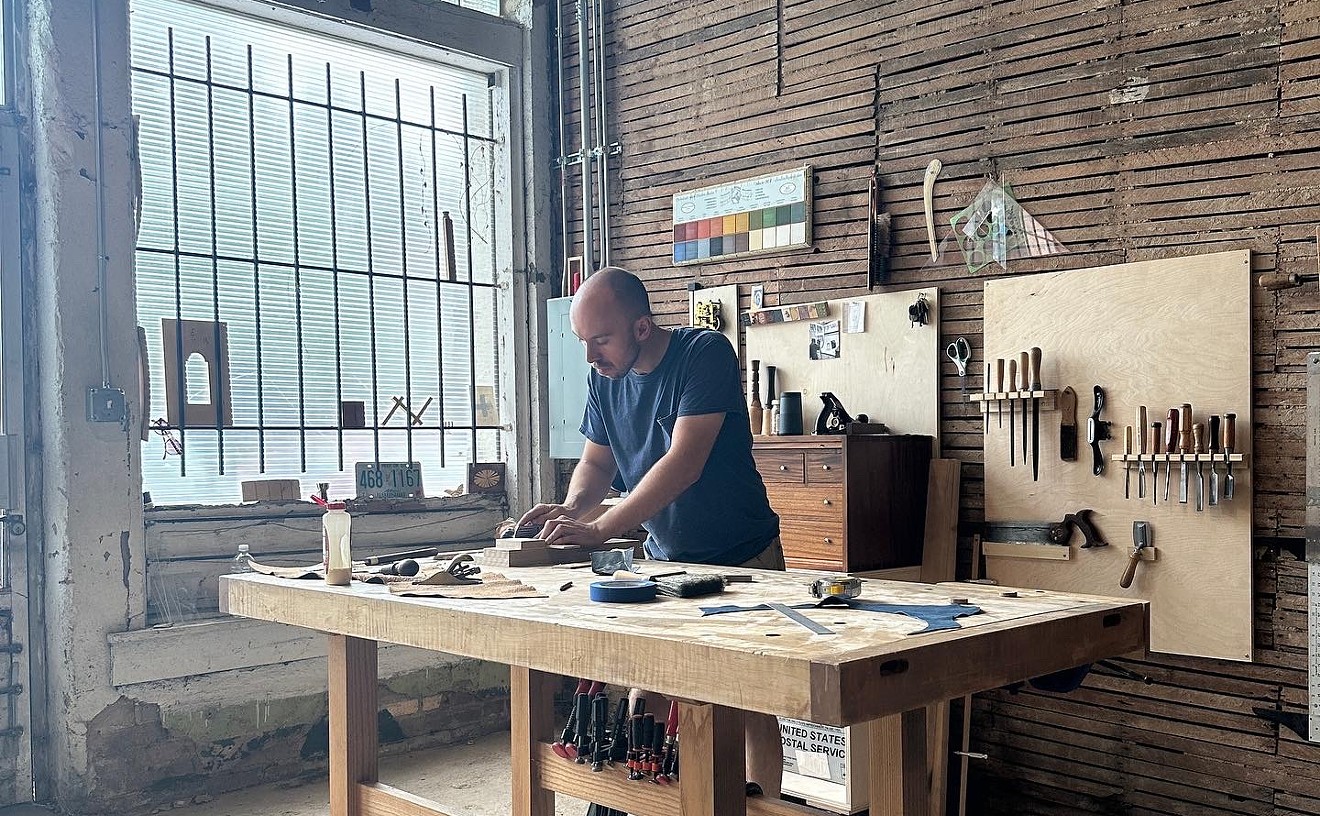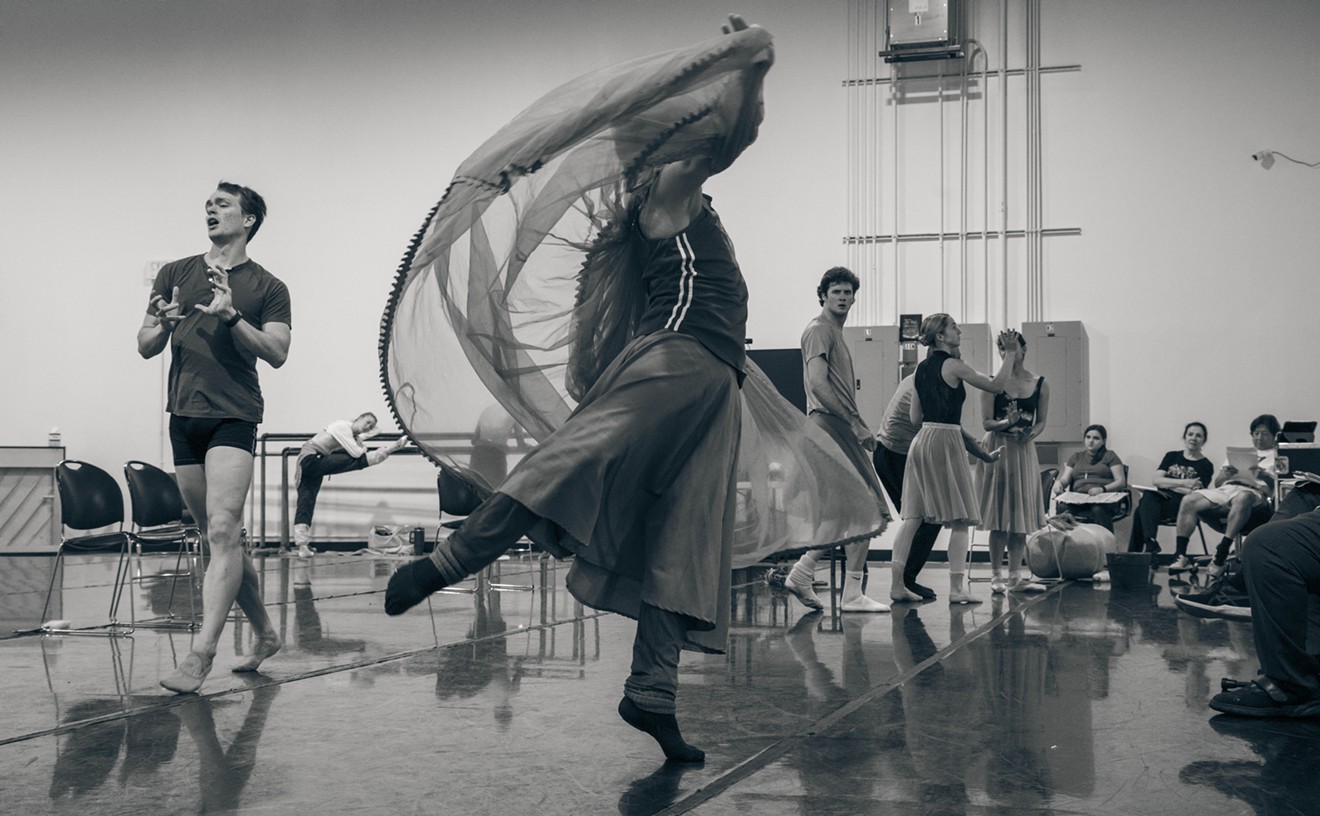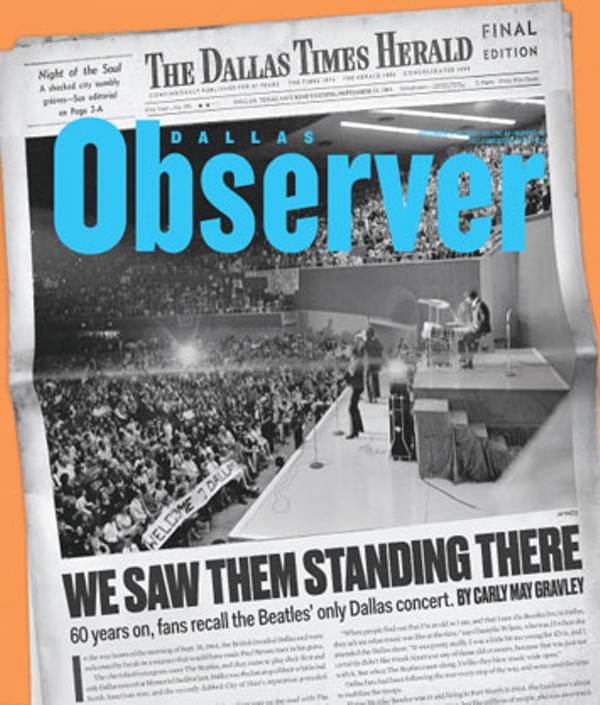The Sherman Cultural District works to spotlight various pieces of the city's history. Funded by the Texas Commission on the Arts, with help from Austin College, the organization recently launched the Sherman Black History Series, a six-part themed installation at the Sherman Public Library. The murals displayed feature remarkable moments and historical figures in local Black history. They serve as a marker for where Sherman has been, and how it's moved forward. Four artists, including Baxley, contributed to the project.
“One topic that had been in the news recently was looking at the history of the Black business district that was lost to a race riot and fire in 1930,” Sherman Culture District Coordinator Carry Walker says. “We wanted to honor that history with the Black professional community because several eminent leaders in that community worked well within the whole framework of Sherman. They were early leaders in African-American professions, including physicians, attorneys and others. We wanted to do some more to highlight that, and we thought a great way to do that would be through a public art project.”
The project ran concurrently with a grant Austin College received to study the history of racial violence in the region. The cultural district worked with college faculty and students to research who lived and worked in the district along Mulberry Street, the Black Business District in the neighborhood, also known as the “Black Wall Street.”
When Baxley submitted his work, the district liked it so much that he was commissioned to do two pieces, one of which featured William Durham, a prolific figure in the Civil Rights Movement who established a legal practice in Sherman. He worked with Thurgood Marshall, who pioneered the desegregation of schools across the nation. Baxley believed his work would be met with appreciation for Durham, but after the story was posted to Sherman's local news station on KXII’s Facebook, Durham says he was greeted by an influx of hateful feedback.
Though the comments are largely positive, several responses echo Durham's claims. One commenter said, “Surely must be more to history than Black history.” Another said, “It's not Juneteenth or Black History Month anymore, so this seems a bit racist,” saying that the project “failed at diversity and inclusion.” Some people contacted Baxley directly just to tell him “his art is shit,” claiming he is racist for even contributing to the project.
History Repeats
The city of Sherman has a history of racial violence, most notably with the 1930s lynching of farmhand George Hughes, an incident named the Sherman Riot that prompted a wave of racial violence across Texas.In October 2021, the Grayson County Commissioners Court approved a marker in memory of Hughes. The Dallas Morning News reported, "The motion passed 3-2. Commissioners Phyllis James and Bart Lawrence voted against. In public comments, Lawrence said he opposed the proposed language for the marker because it was 'divisive.'”
“It's not the first time I've had run-ins with racists out here before,” Baxley says. “I've been told [by someone], they can't wait for certain rights to be taken away so they can hunt me down and string me up. I didn't really experience a lot of racism until my art started getting out there. The more I put my art out there, the more people feel uncomfortable.”
Baxley, a self-proclaimed history buff, isn't afraid to challenge ignorance. He won’t stand for any misrepresentation of history and he sure as hell won’t be bullied into holding his tongue.
“I couldn't allow people to talk like that and let it go,” Baxley says. “I'm a fighter; my wife gets scared about that, but if I don't stand up for what I believe in, these folks will continue to make things worse. I just get tired of people mistreating people of color around here. I had a gentleman come up to me in the grocery store a couple of days after the story and say, ‘That's the piece of shit that talked shit about us on the news.’”
While she doesn’t want to discredit the harm inflicted by these comments, the library's services director Melissa Eason says the comments don’t feel like an accurate representation of the general opinion of the community. She says people feel emboldened to say things they normally wouldn't because they can hide behind a screen.
“In real life, I have not heard a single negative comment,” Eason says. “I've only heard compliments about the project. I have seen some negative comments online on our local media but I personally haven't heard any of them, and no one's addressed them with me.”
Baxley says the negativity is just another opportunity for education. He insists history must be kept at the forefront or we’ll be doomed to repeat it.
“I appreciate the blowback,” Baxley says. “At the same time, we as a community need to come together and understand that it's not just one history. We're a diverse nation. Why darken the past when we can learn from it, shine a light and walk into the light together?”












